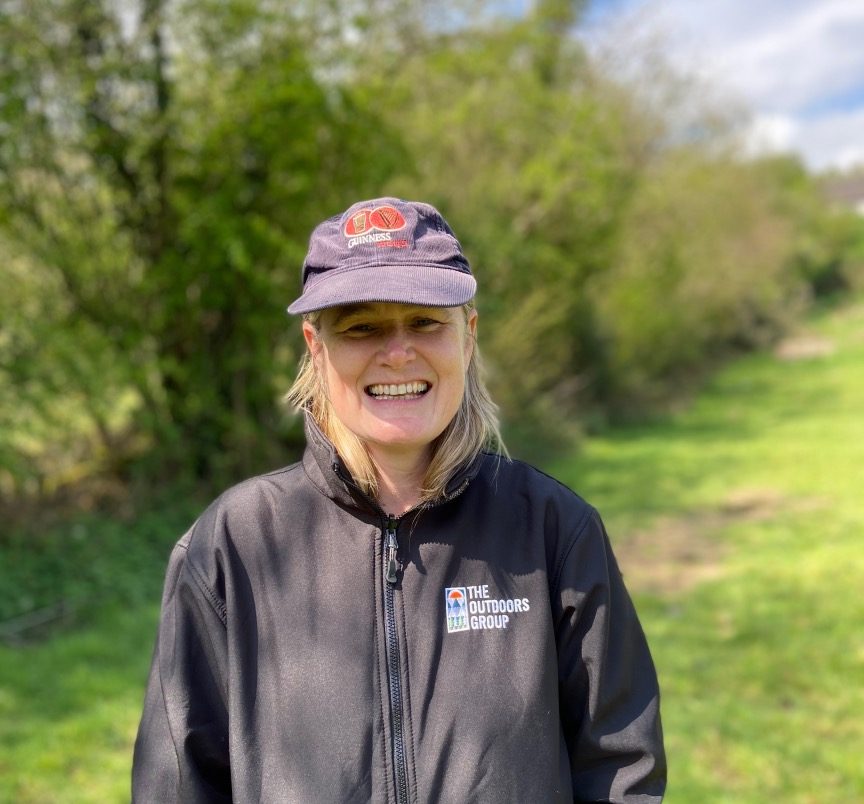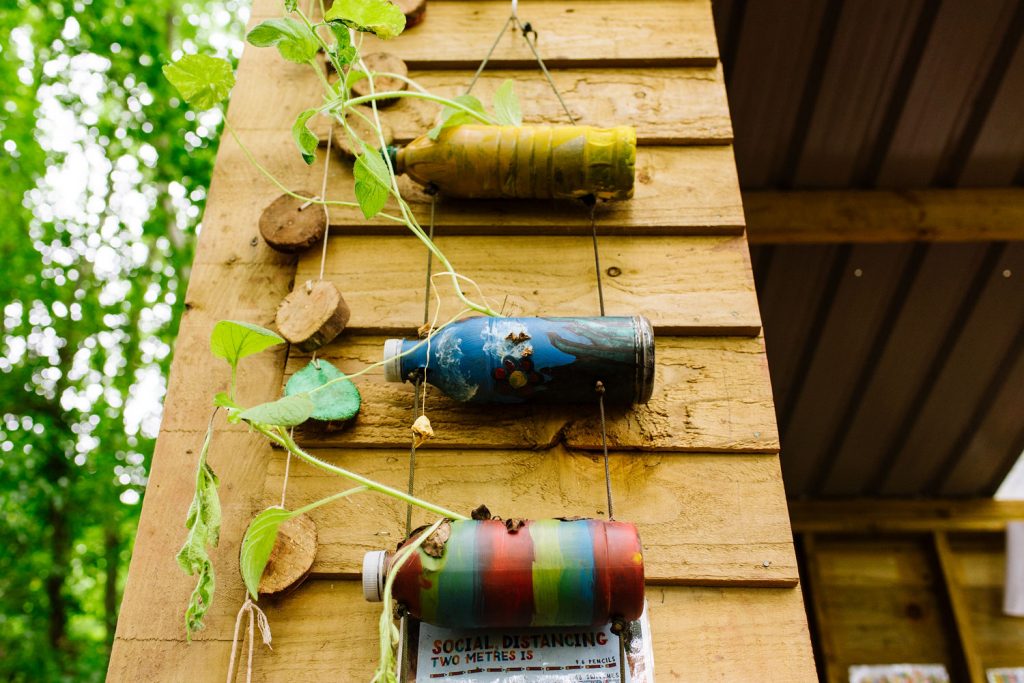GIVING SOMETHING BACK
Here at The Outdoors Group, one of our core values is to ‘build an awesome community’. This is something that has been an absolute cornerstone of who we are and what we believe in, right from our humble beginnings in 2011. We believe in collaboration, over competition, and love it when an opportunity presents itself that means we can be an active part of our local community.
One such occasion arose recently, when we had the chance to work with Ductu, an organisation that aims to connect schools to national employers in order to ‘challenge stereotypical thinking and raise aspirations.’ They believe in a level playing field for all young people and facilitate work experience for ‘disadvantaged and disabled students in all corners of the UK and beyond.’
They acted as an intermediary between us and Devon Careers and Enterprise Hub, and the result was that on Thursday, we were able to provide a ‘workplace’ experience for a group of 6 year 10 learners from a local alternative provision school at our Crediton site. The goal was to give them an insight into what it’s like to work in both learner facing roles and behind the scenes at The Outdoors Group.
They started the visit by learning about health and safety from Health and Safety Officer, Liz Taylor. Once they’d had a chat, they had a tour of the site in which they looked for potential hazards. Then it was on to find out what a tutor does at The Outdoors School and one of our tutors, Emily Woolls was on hand to tell them all about her role and what a typical day looks like at the school. The learners were particularly interested in how we provide a hot meal every day and that our learners plan the menu, find recipes, go shopping for the ingredients and then prepare the meal on the fire pit.
Finally, the group sat down with Alex Cook (one of our Estate Rangers) to talk about the work he does as part of the Estates team. One learner was particularly interested in diggers and is thinking of going to Bicton College. Alex chatted to him about that pathway and where having a digger ticket can lead. Another of the learners expressed an interested in bricklaying which naturally led onto a conversation about our fire pits (made out of concrete blocks and fire bricks) before the whole group had a conversation about construction and carpentry and Alex spoke to them about making our compost toilets and learner bases. Lots of questions were asked and they really engaged with this portion of the visit particularly.
It was such a pleasure to be able to work with these local organisations and a nearby school to facilitate this visit and at least from our side, it seemed to be a fantastic success! As well as tying into our ethos around community, this was also a great way for us to ‘walk the walk’ in terms of being a responsible, inclusive employer.
We aim for The Outdoors Group to be a brilliant place to work and an environment that is accessible to anyone who shares our passion for what we do, regardless of what grades they got in school or their learning style. Diversity and variety is what makes our team so brilliant – everyone has a part to play, everyone can have a role in working to achieve our mission and if everyone approached their work the same way, we wouldn’t have the innovation and creativity that makes us who we are.
So we were so proud (and pleased) to take part in this visit and hope to get involved with plenty more in the future – perhaps we’ll see one of those learners back again working for us in years to come!


SOME MOO-VELLOUS ADDITIONS TO SOUTH BRENT
For folks that live in the countryside, the arrival of a small herd of cows at our South Brent site of The Outdoors School really brought a disproportionate level of excitement from learners, staff, and visitors alike! To be fair, who could blame them – this mixed herd of iconic Dexters and Scottish Galloways are certainly very sweet. But why do you now have cows at your school site I hear you ask? Well, we’re here to tell you all about it!
At our South Brent site, there are a few fields that are simply too steep to be used for any activities with our learners or to be managed with a tractor or farming equipment. So rather than let it sit empty, as part of our commitment to improving the land we work from, we’ve teamed up with Cows in Clover to put the land to good use.
Cows in Clover are a conservation grazing enterprise, who aim to support Devon wildlife by grazing pastures in a nature friendly way. Desley White from the organisation, explains how the cows are going to help our site by grazing on it…
”There are nine cattle on site, a mixture of native breeds, Dexters (the smallest native breed), Galloways, and a Beef Shorthorn Cross. They do very well just on grass and can thrive on rough vegetation. They are all able to outwinter by growing thicker coats in the winter, though they do like a good hedge or clump of trees for the worst weather. They are excellent for improving biodiversity in many different ways, such as by creating a varied sward of grass lengths for different insects to use, by breaking up the ground with their feet and heads providing open soil areas for insects to dig into, and their dung provides a habitat for insects e.g. dung beetles, which provide food for many different birds.”
In addition to being a great addition to our site for environmental reasons, the cows are also proving to be really valuable for our learners attending school at the South Brent site. They have been getting involved in ensuring their health by doing daily welfare checks. This is a brilliant way for them to take on some responsibility and practice taking care of other beings. It strengthens their connection with the natural world around them and also provides a therapeutic outlet as often people feel calmer, and their stress levels reduce when around animals.
All in all, our small but perfectly formed herd is bringing us so much joy and they’ve only been with us a few weeks! The question is…do we stop at cows or are there other animals that might find their way onto our gorgeous South Devon site?!

Staff Leaving
Good morning all,
I am writing to you with the sad news that Paula, or P as she is affectionately known, will be leaving us for pastures new next month. P has worked tirelessly to help us support the SEND needs of all our young people and been a vital part of our safeguarding.
I would like to take this opportunity to thank her for her commitment, hard work and enthusiasm for our unique model in the time she has been with us and to wish her every success for her next chapter and I know she is sad to be leaving us.
Unfortunately, this means that Bingley will also be leaving us which will be very sad for some of our young people.
Learners will be being informed of this tomorrow, so I wanted to let you know in advance of this.
Thank you

Chroming
Chroming is a practice whereby someone inhales a chemical (various) and it can lead to injury or death.
Please read the article here to understand this emerging trend amongst young people, including (importantly) the language to look out for.


Group A Strep – What you need to know
Group A streptococcus (GAS) is a common bacteria. Lots of us carry it in our throats and on our skin and it doesn’t always result in illness. However, GAS does cause a number of infections, some mild and some more serious.
The most serious infections linked to GAS come from invasive group A strep, known as iGAS.
These infections are caused by the bacteria getting into parts of the body where it is not normally found, such as the lungs or bloodstream. In rare cases an iGAS infection can be fatal.
Whilst iGAS infections are still uncommon, there has been an increase in cases this year, particularly in children under 10 and sadly, a small number of deaths.
This blog explains more about GAS and the infections it can cause, as well as how it is spread and what to look out for when your child is unwell.

GAS is spread by close contact with an infected person and can be passed on through coughs and sneezes or from a wound.
Some people can have the bacteria present in their body without feeling unwell or showing any symptoms of infections and while they can pass it on, the risk of spread is much greater when a person is unwell.
GAS causes infections in the skin, soft tissue and respiratory tract. It’s responsible for infections such as tonsillitis, pharyngitis, scarlet fever, impetigo and cellulitis among others.
While infections like these can be unpleasant, they rarely become serious. When treated with antibiotics, an unwell person with a mild illness like tonsilitis stops being contagious around 24 hours after starting their medication.
We are currently seeing high numbers of scarlet fever cases.
The first signs of scarlet fever can be flu-like symptoms, including a high temperature, a sore throat and swollen neck glands (a large lump on the side of your neck).
A rash appears 12 to 48 hours later. It looks looks like small, raised bumps and starts on the chest and tummy, then spreads. The rash makes your skin feel rough, like sandpaper. The rash will be less visible on darker skin but will still feel like sandpaper. More information on scarlet fever can be found on the NHS website, including photos.
If you would like to learn more Click Here
Monkey Website and Mobile App
I have been made aware by Devon and Cornwall police, about an extremely dangerous website and app called ‘Monkey’ which allows users to have video calls with strangers. The platform markets itself as ‘an alternative to Omegle, with a TikTok vibe’ This platform has been reviewed and it has been found to contain large amounts of inappropriate, disturbing and harmful content transmitted via website cameras.